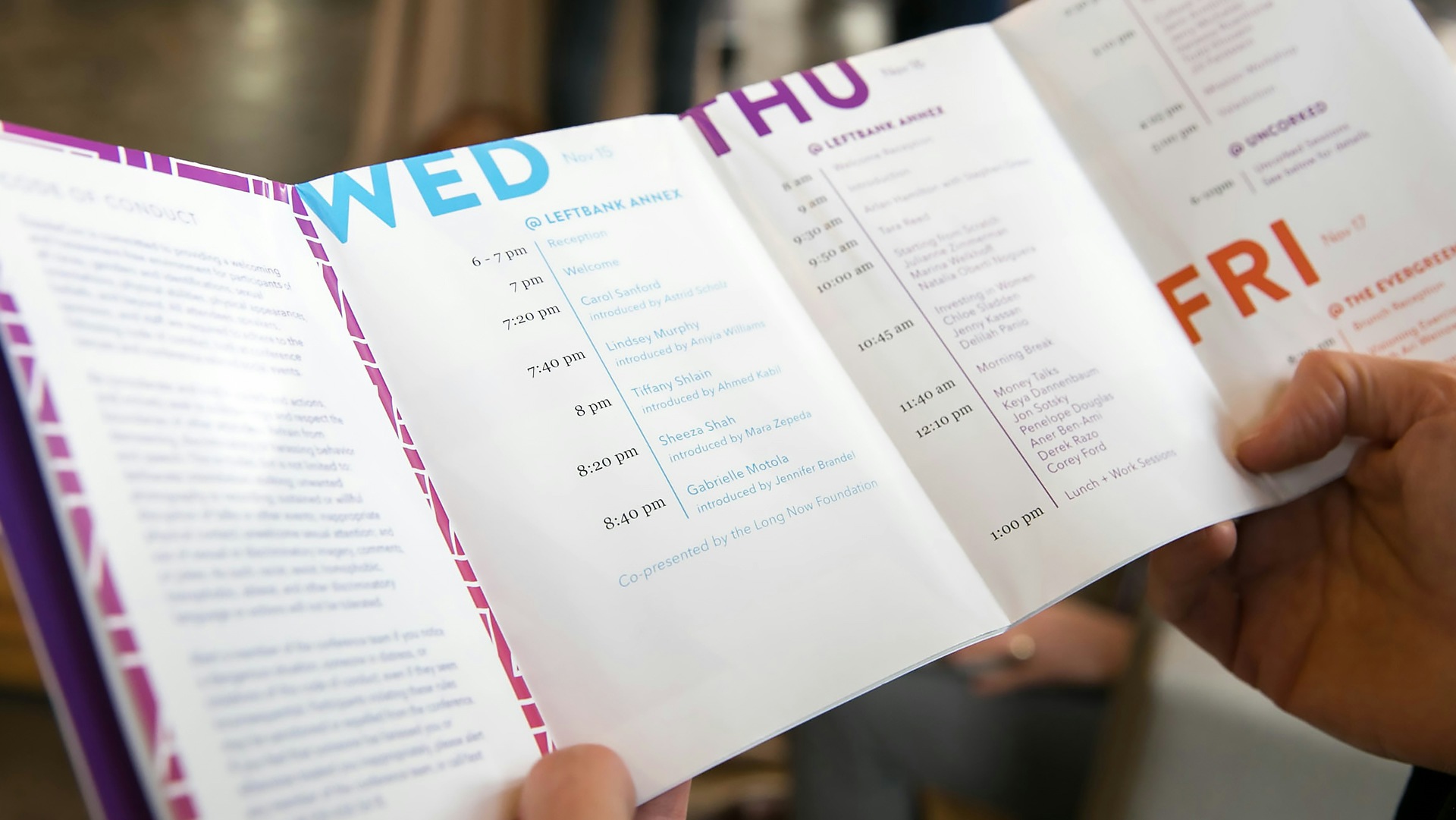By Talie Smith
April 29, 2020
We founded Smith & Connors in 2013 with the aim to do good in the world with our work; to build a culture that fosters talent, trust, creativity, to support our families and possibly have some fun along the way. Could there be a business that could achieve all of these things simultaneously? We decided to take a chance and find out. We designed our company to partner with others who have the same purpose in mind. If a business or organization is actively profiting in an extractive, harmful way, we didn’t want the work. We suspected, and hoped, that we could live by our personal values and succeed.
Admittedly, we’ve made some mistakes along the way, but we’ve generally lived by our values. When we haven’t, either our partners or our team have pointed it out and we’ve changed course. One of the hardest aspects to sticking to our values has been to find those values-aligned businesses and organizations who shared our philosophies. When we started, there were a handful of companies leading the way — Patagonia, Ben & Jerry’s, REI to name a few. They were visionaries to what we like to think of as enlightened capitalism. These companies also unicorns — large, highly-successful and ahead of the curve.
Along came a zebra...
It was around 2017 that we met some incredible female founders who were fed up with dominant venture capital culture obsessed with the bottom line and becoming rich at whatever cost. Mara Zepeda, Astrid Scholz, Aniyia Williams and Jennifer Brandel had all started companies with dual goals of profit and purpose, and they’d all run into investors looking for the next big thing, for the next “unicorn” that could reach 10x growth, a pace set only through disruption and expansion by any means. These four founders wanted to grow their companies for the long term, to help build up communities, not tear them down. So they wrote two articles on Medium in 2017 that contrasted mythical unicorns with the concept of “zebras,” which are “businesses that repair, cultivate, and connect.”
They said it plainly: “Yes, we want to build businesses that succeed financially. But we also want so much more than that, and we aren’t alone. Most of the founders we know, many of whom happen to be women, are driven to build companies that generate money and meaning. And they’re in it for the long haul — not just to get their jollies, make their names, and exit.”
It was a powerful moment for us — we saw that we weren't alone in what we wanted to create. It was exciting to imagine being part of a community of businesses like ours.
Zebras Unite is Born
When they decided to build a new organization, Zebras Unite, they approached us to build a brand platform in time for their inaugural event in Portland, OR: DazzleCon. We established their brand positioning, designed their new logo and identity system, and designed graphics and materials for their big debut. It was a brand project like no other, because we were branding both their new nonprofit as well as a movement in its nascent stage. We’ve been a Zebra ever since and are firmly embedded in the movement and community.

Same Concept, Many Paths
Of course, the Zebra concept isn’t completely new. The idea of the triple bottom line — people, planet, and profit — has been around since 1994. B Labs started up in 2016 to certify businesses who work multiple bottom lines into their governance documents as part of an impact assessment. These businesses known as “Benefit Corporations” (or B-Corps for short) started being certified in 2007, and there are now more than 2,500 B Corps in more than 50 countries around the world. Their “Declaration of Independence” states: “We envision a global economy that uses business as a force for good.”
In contrast to these business options, zebras are self-defined. They don’t have to stick to a predefined structure. They can be a B Corp as well, but this is not required. Instead, Zebras have to be founded on values that guide their company to “repair, cultivate, and connect.”
The Zebras Unite founders published an article in February 2020 that outlines their next steps. They have incorporated the organization as a co-op (a very zebra-esque corporate structure), with the idea that “members will own shares of Zebras Unite. As we grow, you get dividends. This aligns incentives, decentralizes and democratizes decision making, and is an inclusive structure that allows everyone to join the journey.”
The co-op’s first commercial venture is called Zebras Unite Capital, an “inclusive, integrated investment company.” The idea is to create “a distributed infrastructure for raising and deploying capital to startups, with an initial focus on underrepresented founders. The fund will offer both affordable debt and equity. As we invest in Zebra co-op members, profits are returned to the co-op, and its members.”
This is happening fast. There are 45 Zebras Unite chapters on 6 continents. The movement has appeared in the New York Times, the Harvard Business Review, the BBC, The New Yorker, and other publications.
The movement is growing and we encourage you to get involved. We are also in unprecedented times with unprecedented hardships that can make living by your values much more difficult. We started out in 2013 with a dream. We found a community. And even now in these hard times, we’re determined more than ever to continue to live by our company’s values. We’re excited to continue building toward a more inclusive and connected future.
Check out the Zebra's Unite website for more information.